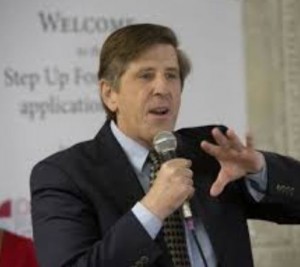
I have spent my entire 42-year professional career working in either education or print media. Moving back and forth between the two was always easy because their functions are so similar. Both help people acquire the information and knowledge they need to be good citizens.
When historians write about education in the early days of our republic, they focus on print media because that was the country’s primary public education system in the 17th, 18th, and early 19th centuries. Government-subsidized mail delivery in the 18th and 19th centuries made access to public education via print media available to the masses. The pamphlets, newspapers, and letters that arrived through the mail were how many learned how to read and write.
Education and print media began taking separate paths in the 19th century. Passage of the nation’s first mandatory school attendance law in Massachusetts in 1852 marked the permanent divergence of how society would manage media and education. From 1852 onward educators would increasingly be government employees tasked by government leaders to help accomplish certain social goals. For example, the Protestant-controlled Massachusetts state government passed this 1852 law to help assimilate the growing influx of Catholic immigrants into Protestantism.
As a student in the 1960s and ‘70s, I experienced government using public schools as instruments of social engineering. My first six years of public schooling were spent in a racially segregated school the local government used to perpetuate segregation in my community. In the late ‘60s and early ‘70s, the courts forced our local school board to desegregate my schools as part of a federal government effort to end racial segregation.
Most educators must be government employees because most teaching jobs are in district schools. But U.S. journalists have never been coerced into becoming government employees. While we have always had legal and regulatory disputes in media—should the New York Times be able to print the Pentagon Papers, can Carol Burnett sue the National Enquirer for libel, or is Facebook sufficiently protecting users’ privacy—our minimalist regulatory oversight of U.S. media has generally worked well.
The public good is best served when journalists have the freedom to report the truth as they see it, even if their truths make some government and business leaders uncomfortable. Since they are human, all journalists are biased. But information is the lifeblood of a democracy. I’d rather have lots of information coming from numerous journalists with diverse biases than a handful of elected and appointed government officials controlling the information we have access to.
Unfortunately, our regulatory approach to public education is more onerous and, consequently, much less effective. Government exerts too much control over educators working in district and charter schools. As government employees, public school teachers lack the professional freedoms that journalists and most other professionals enjoy. This limits their freedom to always exercise their best professional judgments, just as it would if most journalists were forced to be government employees.
It’s puzzling that many journalists do not support educators having the same professional freedoms and opportunities they do. A proposal requiring that journalists at National Public Radio (NPR) or the Public Broadcasting System (PBS) become government employees would be fiercely opposed by most American journalists. Yet many of these same journalists support requiring public educators to be government employees. When educators advocate for having the freedom to own and manage schools, they are often accused of trying to “privatize” or undermine public education. Why educators can only serve the public good if they are government employees while the journalists at NPR or PBS can only serve the public good if they are not government employees is unclear.
I also don’t understand journalists who assert that they can serve the public good while working at for-profit corporations such as the Huffington Post or The New York Times, but teachers working at for-profit charter or private schools cannot serve the public good. Why is it fine for for-profit corporations to employ journalists but not educators?
Public education will work best when teachers have the same professional freedoms as the journalists working in public radio and public television. For over 225 years we’ve shown that giving journalists the freedom to collect and report information with minimal government oversight, while often messy and contentious, works. It will also work in public education. With more professional autonomy, educators will occasionally make bad decisions just as journalists do. But over the long run, our society will benefit from the innovation and entrepreneurship that comes from empowering and trusting our teachers in the same ways we empower and trust our journalists.


